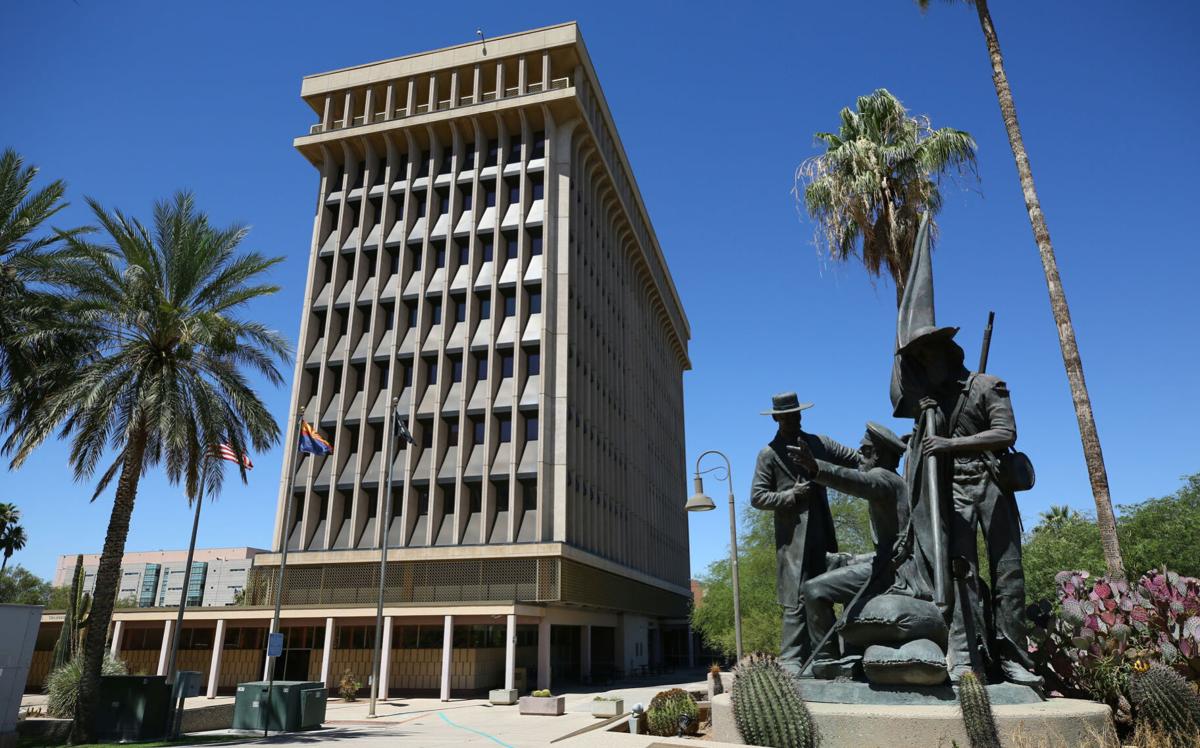Tucson City Council approved $2.2 billion in spending for the next fiscal year in a budget with targeted funding for staffing, service delivery and a five-year investment plan for dedicated city initiatives.
Council members unanimously adopted the budget on Tuesday for the 2024 fiscal year beginning July 1. No changes were made from the tentative budget mayor and council adopted on May 23, but several constituents told the council they were concerned about budgeted amounts to pay for items related to climate change and housing.
The spending plan has $66.5 million earmarked for the second year of the $231.6 million investment plan comprised of funding the city has above its necessary reserve levels to spend down over five years. This year’s plan includes money for public safety equipment, upgrading collector streets and continuing the fare-free transit program.
The budget includes $14.8 million in raises with commissioned line and police officers seeing a 5% bump while other city employees see 3% raises. The spending plan also focuses on shoring up resources in its internal services departments to improve business services, human resources and information technology.
While about $1 million is dedicated to climate change in the city’s five-year investment plan, Chief Financial Officer Anna Rosenberry specified climate-specific funding for the upcoming year is is much larger when considering federal and local funding, including a $12 million low and no emissions grant to reduce carbon emissions from vehicles.
Several advocates for the city’s unsheltered population took to the meeting to denounce the $9.1 million budgeted for the Housing and Community Development Department compared to the $215 million budget for the Tucson Police Department.
As with the climate discussion, Mayor Regina Romero made a point to clarify the total investment the city puts toward certain categories isn’t contained in the general fund budget when considering the totality of federal and local grants.
During the council’s study session item on homelessness initiatives preceding the budget adoption, Romero said “There is incorrect information floating around” about the city’s housing initiatives before an hour-long conversation about how the city’s several housing and unsheltered services interface with a variety of nonprofits and other government agencies to create a holistic approach.
“The layered approach to focusing on investing in very complicated issues is something that is working and that we will continue to push,” she said.
Liz Casey, a volunteer with the mutual aid project Community Care Tucson that provides aid to the unsheltered population, said that while the city’s housing first program works, there’s more work to be done.
“I understand it’s not only $9 million, I know that there’s more. But I think we are coming from a place of exhaustion and trauma seeing folks suffering in the park,” she said. “I understand we might not have all the information, I just want to make sure that you also know there might be other information from houseless folks, especially ones who are not getting into housing, because we need other different solutions.”
City Manager Michael Ortega specified next fiscal year’s housing-related budget is estimated to be more than $116 million for costs like acquiring properties for shelter and affordable housing. While the police budget jumped by nearly $22 million, much of that cost is related to maintenance and retirement costs, including $124 million in paying down pension obligations.
While the city has a solid fund balance and a plan to invest it over the next four years, Ortega warned concern exists “over the volatility of the economy,” especially as Arizona’s flat income tax goes into effect and pulls money from municipalities. In the meantime, the city’s intentional long-term savings is geared to improve its internal operations this year.
“We wanted to make that service delivery, and not only that, we didn’t spend money like it was falling out of the sky,” Council Member Paul Cunningham said. “We’ve squirreled some away so that we can continue to sustain the service delivery we’ve adopted. And that’s why, for me … this is one of the best budgets you guys have ever put together.”
Get your morning recap of today's local news and read the full stories here: http://tucne.ws/morning





